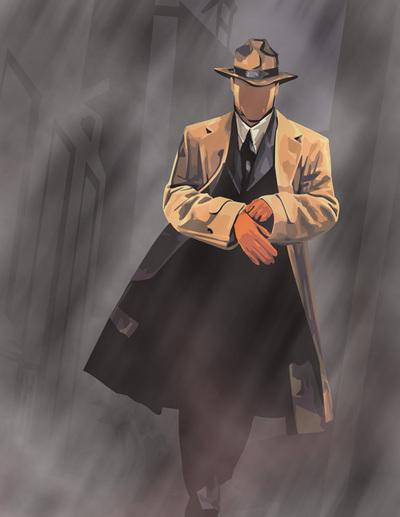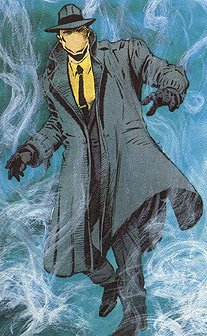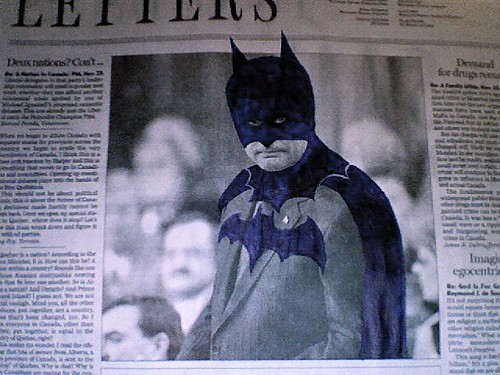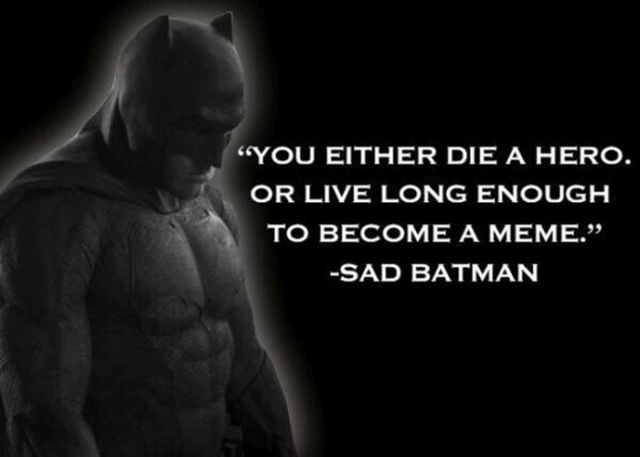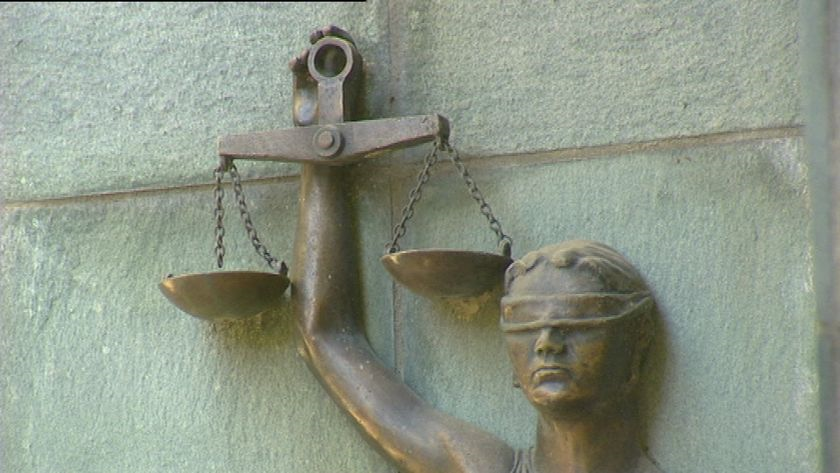
The prepared text of Justin Trudeau's speech in Montreal on Tuesday night announcing his leadership bid for the Liberal Party:
-----------------------------------------------
Make no small dreams, they have not the power to move the soul." -Goethe
Now that'll take courage, but more than that, it'll take hard, honest work. So let me start by telling you about the folks who taught me that best, here in Papineau.
On this side of the riding, it’s Parc Ex. People from every nation live here. They make this neighborhood so vibrant. On the other side of Jarry Park, Xavier and Ella-Grace’s favourite park, is Villeray, one of those solidly francophone neighborhoods that defines Montreal. Artists and intellectuals live there, but so too do many families.
In the east side of the riding, there is St-Michel, where you find people like my good friend Ali Nestor – a boxer – who teaches us how to fight poverty, social exclusion and, from time to time, conservative senators.
This community is not just remarkable for our diversity of ideas, of cultures, of beliefs. What is truly remarkable is that this diversity thrives peacefully.
Here, we trust each other and we look to the future together.
This trust that binds us together here in Papineau is the trust that binds this country together.
My friends : I love Montreal. I love Quebec.
And I am in love with Canada.
I choose, with all my heart, to serve the country I love. That's why I'm so happy to announce here, tonight, my candidacy for the leadership of the Liberal Party of Canada.
So I’m here to ask for your help, because this road will be one long, Canadian highway. We will have ups and downs. Breathtaking vistas and a few boring stretches. And with winter coming, icy patches.
But we will match the size of this challenge with hard, honest work.
Because hard work is what’s required. Always has been.
Canada’s success did not happen by accident, and it won’t continue without effort. This magnificent, unlikely country was founded on a bold new premise. That people of different beliefs and backgrounds, from all corners of the world, could come together to build a better life for themselves and for their children than they ever could have alone.
This new idea that diversity is strength. Not a challenge to be overcome or a difficulty to be tolerated.
That is the heart and soul of the Canadian success story.
That, and the old fashioned idea of progress. The idea that we owe a sacred duty to Canadians who come after us. To work hard. To build a country that offers them even more than we had. More opportunity, more choices, more success, just as our parents and grandparents did for us.
These are the values that define and unite us.
I have seen a lot of this country. And I can tell you that those values are alive and well, from coast to coast to coast.
My fellow Liberals, these values are not the property of the Liberal Party of Canada. They are not
Liberal values; they are Canadian values.
I’ve too often heard it said in Liberal circles that the Liberal Party created Canada. This, my friends, is wrong.
The Liberal Party did not create Canada. Canada created the Liberal Party.
Canadians created the Liberal Party.
The great, growing and optimistic middle class of the last century created a big-hearted, broad-minded consensus. And built a better country. For themselves, yes. But more important, for each other, and for their children.
Canadians built Medicare.
Canadians built an open and dynamic economy.
Canadians welcomed newcomers from around the world into their communities and businesses.
Canadians developed an independent foreign policy, and when necessary, bled for our values in faraway lands.
Canadians brought their constitution home.
Canadians demanded that their inalienable rights and freedoms be placed above the reach of politics.
And Canadians balanced the budget.
The Liberal Party was their vehicle of choice. It was the platform for their aspirations, not their source.
When we were at our best, we were in touch, open to our fellow citizens and confident enough in them to take their ideas and work with them to build a successful country.
If there is a lesson to be drawn from our party’s past it is not where we landed but how we got there.
We were deeply connected to Canadians. We made their values our values, their dreams our dreams, their fights our fights.
The time has come to write a new chapter in the history of the Liberal Party.
This will be a campaign about the future, not the past. I want to lead a movement of Canadians that seeks to build, not rebuild. To create, not recreate.
After all, we live in a very different world, my friends. Twenty years ago, I was part of the first graduating class at my university to get email. I was of the last group of pre-Google high school teachers.
And now, my kids don’t know there was a world before Blackberries.
But if the way we will build it is new, what we have to build is timeless.
We know what Canadian families want. Good jobs. A dynamic and growing economy that allows us to educate our kids as they mature, and to care for our parents as they age.
We want a compassionate society that pulls together to help the vulnerable, and gives the less fortunate a chance at success.
We know that Canada is the freest society on Earth because we trust each other. So we want a government that looks at Canadians with respect, not suspicion. That celebrates the Charter of Rights and Freedoms. That believes in your choices, your values and your liberty.
Some say that youth carry our future. I say youth are an essential resource for our present. We need to empower all young Canadians, through world-class education, through rich and relevant work experience, and through opportunity to serve their communities and their world. Their voices, their choices, matter deeply, as do their actions: they are already leaders today.
And directly, to our First Nations, the Canadian reality has not been - and continues to not be - easy for you. We need to become a country that has the courage to own up to its mistakes and fix them together, people to people. Your place is not on the margins. It is at the very heart of who we are and what we are yet to become.
We want a foreign policy that will give us hope in the future and that will offer solutions to the world.
We want leadership that fosters and celebrates economic success in all regions of the country. Not leadership that seeds resentment between provinces.
We need to match the beauty and productivity of this great land with a new national commitment to steward it well. My generation understands that we cannot choose between a strong and prosperous economy, and a healthy environment. The conservative approach may work for a few, and for a while. But we know we can’t create long term prosperity without environmental stewardship.
We need to learn what we have forgotten. That the key to growth, to opportunity, to progress, is a thriving middle class. People with good jobs. Families who are able to cope with modern life’s challenges.
A thriving middle class provides realistic hope and a ladder of opportunity for the less fortunate. A robust market for our businesses. And a sense of common interest for all.
The great economic success stories of the recent past are really stories of middle class growth. China, India, South Korea and Brazil, to name a few, are growing rapidly because they have added hundreds of millions of people to the global middle class.
The news on that front is not so good at home; I don’t need to tell you that. You, like our fellow Canadians all over the country, live it every day. Canadian families have seen their incomes stagnate, their costs go up, and their debts explode over the past 30 years.
What’s the response from the NDP? To sow regional resentment and blame the successful. The Conservative answer? Privilege one sector over others and promise that wealth will trickle down, eventually.
Both are tidy ideological answers to complex and difficult questions. The only thing they have in common is that they are both, equally, wrong.
We need to get it right. We need to open our minds to new solutions, to listen to Canadians, to trust them.
And as we face these challenges, the only ideology that must guide us is evidence. Hard, scientific facts and data. It may seem revolutionary in today's Ottawa, but instead of inventing the facts to justify the policies, we will create policy based on facts. Solutions can come from the left or the right, all that matters is that they work. That they help us live - and thrive - true to our values.
Because middle class growth is much more than an economic imperative.
The key to Canadian unity is the shared sense of purpose so hard to define but so deeply felt. The sense that we are all in this together. That when Albertans do well, it creates opportunities for Quebecers. That when Quebecers create and innovate, it echoes across the country and around the world. That whether you’re in St. Boniface or St. John’s, Mississauga or Surrey, we have common struggles and common dreams.
It is the middle class, not the political class, that unites this country. It is the middle class that makes this country great.
We know some Quebeckers want their own country. A country that reflects our values, that protects our language and our culture, that respects our identity.
My friends, I want to build a country too. A country worthy of my dreams. Of your dreams. But for me, that country reaches from the Atlantic to the Pacific, from the Great Lakes to the Grand North.
Quebeckers have always chosen Canada because we know it is the land of our ancestors - who built this country from east to west. They were here to write the first chapters of the great Canadian history of courage, liberty and hope. We have left our footsteps everywhere.
Will we put this history aside now because people of other languages came after us with the same dream of building a better country ? Of course not. Our contribution to Canada is far from over.
I want the Liberal Party to be once again the party that promotes and cherishes the francophone reality of this country. I want my party to support francophone communities across the country. And I want the Liberal Party to be once again the vehicle for Quebeckers to contribute to the future of Canada.
Now my candidacy has been the source of some speculation over the past months. The odd newspaper article has been written. Some have been very odd indeed.
But I said to Liberals after the last election that we need to get past this idea that a simple leadership change could solve our problems.
I believe that still. My candidacy may shine a few extra lights upon us. It may put some people in the bleachers to watch. But what we do with that opportunity is up to us.
All of us.
And when Canadians tune in, we need to prove to them that we Liberals have learned from the past, yes. But that we are one-hundred-per-cent focused on the future.
And not the future of our party: the future of our country.
I am running because I believe this country wants and needs new leadership. A vision for Canada’s future grounded not in the politics of envy or mistrust. One that understands, despite all the blessings beneath our feet, that our greatest strength is above ground, in our people. All Canadians, pulling together, determined to build a better life, a better Canada.
To millions and millions of Canadians, their government has become irrelevant, remote from their daily lives, let alone their hopes and dreams. To them, Ottawa is just a place where people play politics as if it were a game open to a small group, and that appeals to an even smaller one.
They do not see themselves or their values reflected in Ottawa
My friends, we will do better.
This is not a personal indictment of Mr Harper or Mr Mulcair. On the contrary, I honour their commitment and their service. But I think they are both dead wrong about this country. And, I want to tell you, together, we can prove it.
There will be many highs and lows between now and April. And if we work hard and find success, I know there will be many, many more between then and 2015.
I do not present myself as a man with all the answers. In fact, I think we’ve had quite enough of that kind of politics.
But I do know I have a strong sense of this country. Where we’ve been, where we are, and where we want to go. And I believe I can bring new forces to bear on old problems. I can convince a new generation of Canadians that their country needs them. That it values their energy, ingenuity and vision. Together, we can convince young Canadians that serving this great country is its own reward.
I promise you this: if you entrust me with the privilege of leadership, I will work long, hard and tirelessly. I learned first-hand from the people of Villeray, St-Michel and Park Extension that there are no shortcuts, no easy ways to earn trust and support. You have to work at it, day in and day out.
Because that's what it's going to take, and that's what Canadians deserve.
Think about it for a moment: when was the last time you had a leader you actually trusted? And not just the nebulous "trust to govern competently", but actually trusted, the way you trust a friend to pick up your kids from school, or a neighbor to keep your extra front door key? Real trust? That's a respect that has to be earned, step by step.
I feel so privileged to have had the relationship I've had, all my life, with this country, with its land, and with its people.
From my first, determined steps as a toddler to my first, determined steps as a politician: we've travelled many miles together, my friends...
You have always been there for me. You have inspired me, and supported me in good and more difficult times. And you have made me the man and the father I have become.
I chose today to launch this campaign because it is my little brother’s birthday. Michel was killed in an avalanche, doing what he loved, in the country that he loved as much as anyone I have ever known. Michel would be 37 years old today. Every day, I think about him and I remember not to take anything for granted. To live my life fully. And to always be faithful to myself.
At Michel's funeral, my father read from the Letter of St. Paul to the Corinthians. Paul wrote, “when I was a child, I spoke as a child. But now that I am a man, I put away childish things.”
It is time for us, for this generation of Canadians to put away childish things. More, it is time for all of us to come together and get down to the very serious, very adult business of building a better country. For ourselves, for our fellow Canadians, and for our children.
We Canadians live in a blessed country. We are the most diverse people on Earth, yet we are peaceful. We are tough but we are compassionate. We are confident, but we work hard and we earn it. We have resources that are the envy of the world.
Let us pledge to one another to match those resources with resourcefulness. Let us rededicate ourselves to the glorious, improbable, work-in-progress that is Canada. And to serve its people through the only party willing to speak to and for all Canadians: the Liberal Party of Canada.
So tonight, Sophie and I draw on our love for our family and offer up all we have in service to Canada, and to each and every one of you.
Join us.



